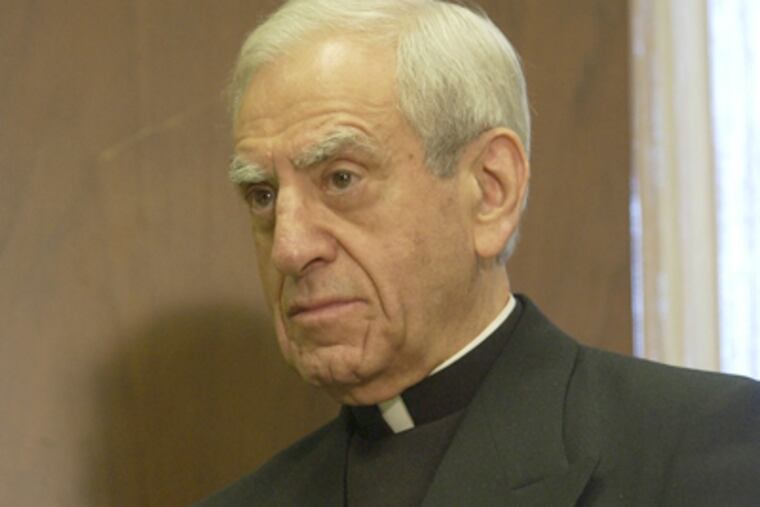Inquirer Editorial: Couldn't shred the truth
With the deeply troubling disclosure that Cardinal Anthony J. Bevilacqua ordered aides to shred a memo identifying 35 suspected predator priests, there's no longer any question that Pennsylvania should give victims of long-ago abuse an avenue to have their day in court.

With the deeply troubling disclosure that Cardinal Anthony J. Bevilacqua ordered aides to shred a memo identifying 35 suspected predator priests, there's no longer any question that Pennsylvania should give victims of long-ago abuse an avenue to have their day in court.
The revelations about Bevilacqua present a textbook illustration of what's at stake in victims' efforts to uncover the truth about the apparent cover-up of alleged abuse by clergy spanning decades. The cardinal died Jan. 31, on the eve of the sex-abuse trial of a former church administrator and two former parish priests.
Just as two Philadelphia grand juries concluded, Bevilacqua's reported 1994 shredding directive, brought to light only last week, appears to confirm that there was a carefully orchestrated effort by Archdiocese of Philadelphia officials to shield predators.
Similarly, it has been revealed that Bevilacqua joined with other Pennsylvania bishops "to examine how the dioceses . . . can better protect their secret archives from civil-law discovery," according to court records.
By hiding the truth from parishioners and police long after it was possible to prosecute alleged crimes, due to limitations statutes, the apparent church cover-up denied victims justice in the criminal courts.
Indeed, the conspiracy charges against Msgr. William J. Lynn, a top aide to Bevilacqua, and the counts being pursued against former priests James J. Brennan and Edward Avery for allegedly molesting a boy in the 1990s, are the exception. But victims would have another route to uncover the truth if they could file lawsuits under so-called civil-window legislation, which would relax the state's statute of limitation for a specific period.
State Rep. Michael McGeehan (D., Phila.) has introduced a bill in Pennsylvania that mirrors the civil-window laws in California and Delaware. But Catholic officials continue to stymie Harrisburg's efforts to act on the civil-window bill, with Philadelphia Archbishop Charles J. Chaput among its most vocal and vehement opponents.
While church officials make the dubious claim that lawsuits could lead to parish closings and the like, sexual-abuse victims say their primary aim isn't financial damages - but to uncover church records to expose the truth.
The Bevilacqua memo seems to be irrefutable proof that a cover-up not only occurred, but, in effect, will continue so long as the church's battle against full disclosure continues.